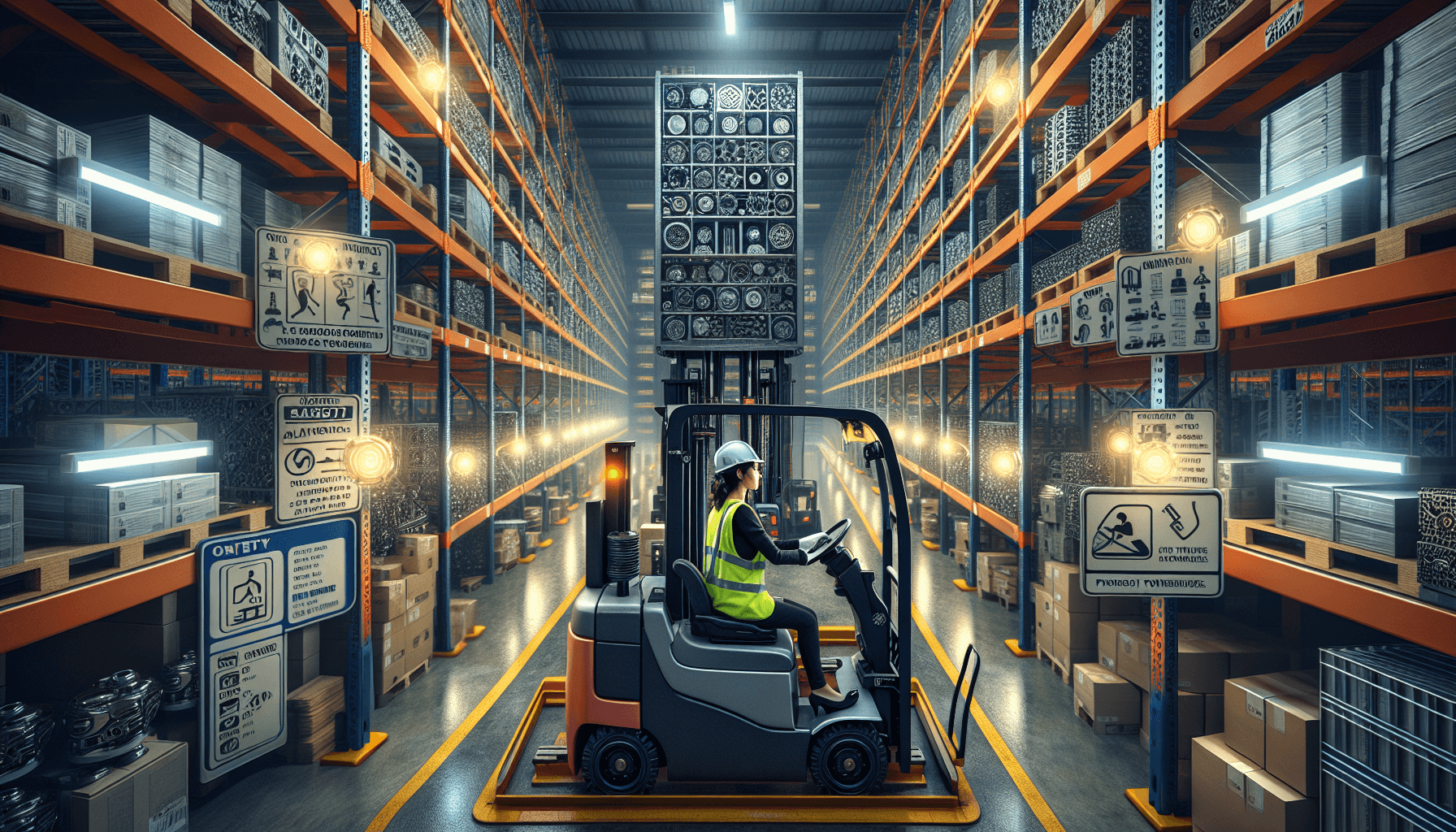The automotive industry is one that operates on a massive scale, with numerous moving parts and complex operations. Within the automotive industry, warehouse operations are crucial for storing and handling various components, equipment, and vehicles. One of the key elements in maintaining a safe and efficient warehouse is forklift safety.
The Role of Forklifts in the Automotive Industry
Forklifts are an integral part of warehouse operations in the automotive industry. They are used for various tasks such as loading and unloading materials, transporting parts and components within the warehouse, and moving vehicles. Due to their versatility and ability to handle heavy loads, forklifts play a vital role in ensuring efficient and smooth workflow in automotive warehouses.
However, it is important to recognize that forklifts also pose certain risks and hazards if not used properly. According to the Occupational Safety and Health Administration (OSHA), forklifts are a leading cause of workplace accidents in the United States. In fact, OSHA reports that there are approximately 85 forklift fatalities and 34,900 serious injuries each year. These statistics highlight the significance of prioritizing forklift safety in the automotive industry.
The Importance of Forklift Safety
Forklift safety should be a top priority for automotive warehouse managers and operators. By implementing proper safety measures, companies can protect their employees and prevent accidents that can result in injuries, damage to property, and even loss of life. Additionally, prioritizing forklift safety can also help organizations avoid costly penalties and legal liabilities.
When it comes to forklift safety, training and education are key components. All forklift operators should undergo comprehensive training programs to ensure they have the necessary skills and knowledge to operate the equipment safely. Training programs should cover topics such as forklift operation, load handling, maneuvering in different environments, and recognizing potential hazards.
In addition to training, regular maintenance and inspections are crucial for forklift safety. It is essential to conduct routine inspections to identify any issues or defects that may compromise the safe operation of the forklifts. Any identified problems should be addressed promptly and repairs should be carried out by qualified technicians. Regular maintenance and inspections help ensure that forklifts are in optimal condition and reduce the risk of accidents caused by equipment failure.
Incorporating safety features and technologies into forklifts is another way to enhance forklift safety in the automotive industry. Features such as seat belts, audible alarms, and warning lights can significantly reduce the risk of accidents and injuries. Additionally, advanced technologies like proximity sensors and cameras can provide operators with better visibility and awareness of their surroundings, further enhancing safety in warehouse operations.
Warehouse layout and organization also play a significant role in forklift safety. Clear traffic plans, designated pedestrian areas, and proper signage can help minimize the chances of accidents and improve overall safety within the warehouse. Maintaining clear pathways, ensuring proper lighting, and regularly reviewing and updating safety protocols are essential for creating a safe working environment.
Lastly, conducting regular safety evaluations and assessments is crucial for identifying areas that need improvement and addressing any potential hazards. Companies can benefit from partnering with a trusted provider of warehouse optimization solutions, such as HCO Innovations. Through their warehouse safety evaluation services, HCO Innovations helps organizations identify safety gaps, implement effective safety measures, and ensure compliance with industry regulations.
Conclusion
Forklifts play a vital role in the automotive industry, assisting in various warehouse operations. However, it is important to prioritize forklift safety to prevent accidents and ensure the well-being of employees. By implementing proper training, maintenance, safety features, and warehouse organization, automotive companies can significantly enhance forklift safety. Partnering with a reputable provider like HCO Innovations can further support organizations in optimizing their warehouse safety measures to protect their workforce and promote a culture of safety.

